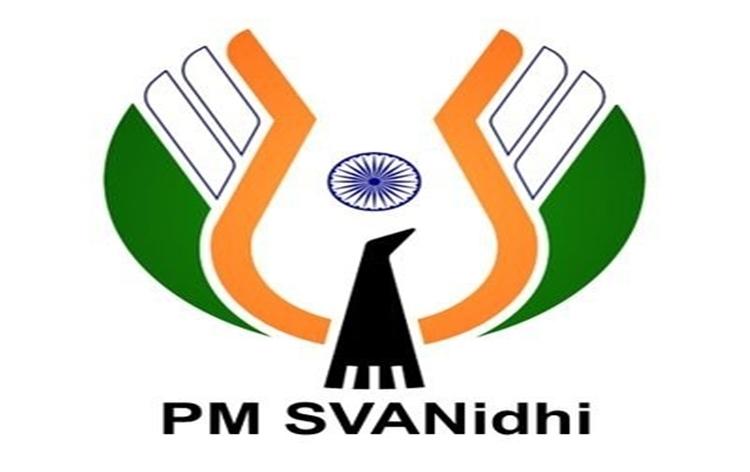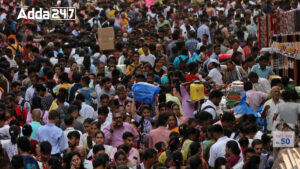The PM Street Vendor’s AtmaNirbhar Nidhi (PM SVANidhi) Scheme, launched on June 1, 2020, has been a game-changer for India’s urban street vendors. This micro-credit scheme aims to provide collateral-free working capital loans to street vendors, with a focus on empowering this marginalized community. A recent report by the State Bank of India’s economic research department (ERD) sheds light on the remarkable impact of the scheme, particularly in terms of gender equality and socio-economic transformation.
Gender Equality: A Key Outcome
The report highlights that 43 percent of the beneficiaries of the PM SVANidhi Scheme are female street vendors. This statistic reflects the empowerment of entrepreneurial capabilities among urban women. In a society where women often face economic challenges and limited opportunities, the scheme has emerged as a gender equalizer, providing urban females with the means to become financially independent and contribute to their families’ well-being.
Inclusivity and Transformation
One of the most striking aspects of the scheme is its inclusivity. Approximately 75 percent of loan beneficiaries come from the “non-general category.” This statistic demonstrates the power of well-intended policy schemes to drive transformative changes. The PM SVANidhi Scheme has reached out to those who belong to disadvantaged sections of society, offering them a chance to improve their economic status and quality of life.
Enabling Urban Entrepreneurs
The PM SVANidhi Scheme has witnessed tremendous success since its launch, with around 70 lakh loans disbursed in all three tranches – the 1st tranche offers loans up to ₹10,000, the 2nd tranche up to ₹20,000, and the 3rd tranche up to ₹50,000. This initiative has benefited over 53 lakh street vendors, with a total value exceeding ₹9,100 crore. The scheme has enabled street vendors to access the working capital they need to grow and sustain their businesses.
Repayment and Financial Discipline
The ERD’s assessment reveals that the scheme has fostered financial discipline among beneficiaries. The ratio of people repaying the first loan of ₹10,000 and taking the second loan of ₹20,000 is 68 percent. Furthermore, the ratio of people repaying the second loan of ₹20,000 and taking the third loan of ₹50,000 is 75 percent. This pattern of responsible borrowing and repayment reflects the scheme’s effectiveness and the commitment of its beneficiaries.
Poverty Knows No Boundaries
The report also emphasizes that the beneficiaries of the PM SVANidhi Scheme come from diverse religious backgrounds. About 80 percent of borrowers are Hindu, while the remaining 20 percent are non-Hindu. This statistic underscores the idea that poverty knows no religion, caste, creed, or gender. The scheme has been successful in reaching out to individuals in need, regardless of their religious affiliations.
Economic Upliftment: Debit Card Spending
Another noteworthy impact of the PM SVANidhi Scheme is the economic upliftment it has brought to beneficiaries. The average debit card spending of PM SVANidhi account holders increased by 50 percent to about ₹80,000 in FY23, compared to FY21. This means that in just two years, the average annual spending increased by about ₹28,000, all with a relatively small amount of seed capital infused into informal urban entrepreneurs.
Incentives for Responsible Borrowing
The scheme promotes regular repayments by offering a 7 percent interest subsidy, encouraging beneficiaries to maintain financial discipline. Additionally, digital transactions are rewarded with cashback of up to ₹1,200 per year, incentivizing the use of digital payment methods and financial inclusion.
Urban Impact
The PM SVANidhi Scheme is making a significant impact in urban areas. According to the PM SVANidhi dashboard, around 5.9 lakh borrowers are in six mega cities, and 7.8 lakh borrowers come from the top 10 million+ population cities. The scheme has transformed the lives of urban street vendors, enabling them to thrive in bustling metropolitan environments.
The Role of Public Sector Banks
The ERD report acknowledges the pivotal role of public sector banks in achieving this remarkable milestone. Approximately 31 percent of total loans have been disbursed by the State Bank of India alone. The top five banks, including Bank of Baroda, Union Bank of India, Punjab National Bank, and Canara Bank, accounted for two-thirds of the total disbursement. Their support has been instrumental in realizing the goals of the PM SVANidhi Scheme.



 China, Australia, and India Lead in Fore...
China, Australia, and India Lead in Fore...
 India’s Population to Peak at 1.7 Bill...
India’s Population to Peak at 1.7 Bill...
 India Ranks Fifth in GenAI Innovations, ...
India Ranks Fifth in GenAI Innovations, ...
